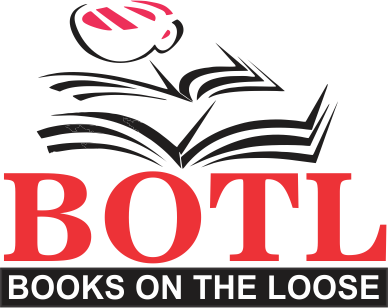-
Start with why by Simon Inek
Why are some people and organizations more innovative, more influential, and more profitable than others? Why do some command greater loyalty from customers and employees alike? Even among the successful, why are so few able to repeat their success over and over?
People like Martin Luther King Jr., Steve Jobs, and the Wright Brothers might have little in common, but they all started with why. It was their natural ability to start with why that enabled them to inspire those around them and to achieve remarkable things.
₦6445 -
Inventology by Pagan Kennedy
ventology uses the stories of inventors and surprising research to reveal the steps that produce innovation. As Kennedy argues, recent advances in technology and communication have placed us at the cusp of a golden age; it’s now more possible than ever before to transform ideas into actuality. Inventology is a must-read for designers, artists, makers—and anyone else who is curious about creativity. By identifying the steps of the invention process, Kennedy reveals the imaginative tools required to solve our most challenging problems.
₦6500 -
Commo-sense wisdom by Pepper de Callier
Common Sense Wisdom blends, in a unique way, quotes from ancient philosophers to modern-day business executives, sports figures and thought leaders from Buddha to Baltasar Gracian and Goethe, to Winston Churchill, Mary Pickford, Oscar Wilde, Wayne Gretzky and Margaret Thatcher to Walt Disney and Vaclav Havel and applies them to life in the 21st century, a time when act or be acted upon takes on a whole new meaning about one s life.
₦6500 -
Imaginable by Jane Mcgonigal
Today it feels more challenging than ever to feel unafraid, hopeful, and equipped to face the future with optimism. How do we map out our lives when it seems impossible to predict what the world will be like next week, let alone next year or next decade? What we need now are strategies to help us recover our confidence and creativity in facing uncertain futures.
By learning to think the unthinkable and imagine the unimaginable you can better plan for a future you’d like to see. And by seeing what’s coming faster, you can adapt to new challenges, reduce anxiety, and build hope and resilience
₦7290 -
Build the Damn Thing by Kathryn Finney
Don’t wait for the system to let you in–break down the door and build your damn thing. For all the Builders striving to build their businesses in a world that has overlooked and underestimated them: this is the essential guide to knowing, breaking, remaking and building your own rules of entrepreneurship in a startup and investing world designed for and by the “Entitleds.”
₦8995 -
Doom : The Politics of Catastrophe by Niall Ferguson
Disasters are inherently hard to predict. But when catastrophe strikes, we ought to be better prepared than the Romans were when Vesuvius erupted or medieval Italians when the Black Death struck. We have science on our side, after all. Yet the responses of many developed countries to a new pathogen from China were badly bungled. Why?
Drawing from multiple disciplines, including economics and network science, Doom: The Politics of Catastrophe offers not just a history but a general theory of disaster. As Ferguson shows, governments must learn to become less bureaucratic if we are to avoid the impending doom of irreversible declin
₦6950 -
Pole Apart by Alison Goldsworthy, Laura Osborne, Alexandra Chesterfield
In Poles Apart, an expert on polarisation, a behavioural scientist and a professional communicator explain why we are so prone to be drawn into rival, often deeply antagonistic factions. They explore the shaping force of our genetic make-up on our fundamental views and the nature of the influences that family, friends and peers exert. They pinpoint the economic and political triggers that tip people from healthy disagreement to dangerous hostility, and the part played by social media in spreading entrenched opinions. And they help us to understand why outlooks that can seem so bizarre and extreme to us seem so eminently sensible to those who hold them.
₦5705 -
Emotion by Design by Greg Hoffman
In EMOTION BY DESIGN, Hoffman shares lessons and stories on the power of creativity drawn from almost three decades of experience within Nike. A celebration of ingenuity and a call-to-arms for brand-builders to rediscover the human element in forming consumer bonds, EMOTION BY DESIGN is an insider’s guide to unlocking inspiration within a brand and building stronger emotional connections with consumers, using Hoffman’s three favorite guiding principles:
Join Greg Hoffman, Nike’s former Chief Marketing Officer, as he helps craft the company’s iconic campaigns for Ronaldo and Serena, Olympic Games and World Cup finals. Together, his insights offer a revelatory method that will make any brand more creative: emotion by design.
__₦6105 -
Outpacer by Alex Holt
Outpacers are disruptors – they don’t dust off old tools for new problems. The working world is changing quickly and they have the characteristics businesses need to harness to grow with a changing work culture. Combining years of research and incredible insights from well-known leaders from the likes of Microsoft, Nike and Tesla, Outpacer defines the blueprint for success in a rapidly changing world of work in nine key steps and decodes the secrets of individual and organizational greatness.
This is not business as usual.₦7290 -
World Class by Will Greenwood and Ben Fennell
Will Greenwood is best known for being an integral part of the 2003 Rugby World Cup-winning team. Ben Fennell has spent over 16 years helping the world’s biggest businesses and brands grow. Together, they have established that world-class performance – in both business and sport – requires a fresh approach, and a new set of behaviours.
Having spoken to inspirational leaders across all areas of business and sport, including Michael Johnson, Tanni Grey-Thompson, Rio Ferdinand, Dame Carolyn McCall, Dave Lewis and Sir Clive Woodward, the authors have identified the key characteristics of world-class performance. These guiding principles of celebrating difference, forging togetherness and accelerating growth constitute a new framework for modern leadership.
₦9275 -
Power Play by by Tim Higgins
Drawing on the simple four-colour system that made Surrounded by Idiots a global bestseller, Erikson shows how understanding your boss’s behavioural tendencies as well as your own will lead to a more harmonious and productive workplace. He also sets out what characterises an exemplary leader type and how you can adapt your behaviour to model it. Because there are two sides to every coin, Erikson also looks at employees themselves and why some colleagues frequently underachieve and what you can do to change this.
But Tesla’s success was far from guaranteed. Founded in the 2000s, the company was built on an audacious vision. Musk and a small band of Silicon Valley engineers set out to make a car that was quicker, sexier, smoother, and cleaner than any gas-guzzler on the road. Tesla would undergo a hellish fifteen years, beset by rivals—pressured by investors, hobbled by whistleblowers. Musk often found himself in the public’s crosshairs, threatening to bring down the company he had helped build.
₦4915 -
Master of Scale
Behind the scenes in Silicon Valley, Reid Hoffman (founder of LinkedIn, investor at Greylock) is a sought-after advisor to heads of companies and heads of state. On his podcast Masters of Scale, he sits down with an all-star list of visionary founders and leaders, digging into the surprising strategies that power their growth. In this book, he draws on their most riveting, revealing stories-as well his own experience as a founder and investor-to distill the secrets behind the most extraordinary successes of our times.
Through vivid storytelling and straightforward analysis, Masters of Scale distills their collective insights into a set of counterintuitive principles that anyone can use. How do you find a winning idea and turn it into a scalable venture? What can you learn from a “squirmy no”? When should you stop listening to your customers? Which fires should you put out right away, and which should you let burn? And can you really make money while making the world a better place? (Answer: Yes.)
₦6100


